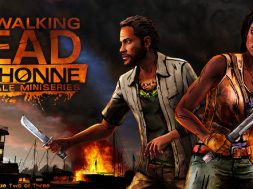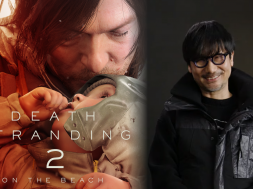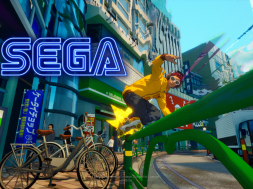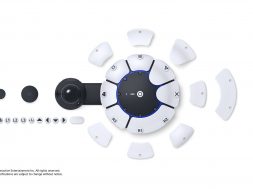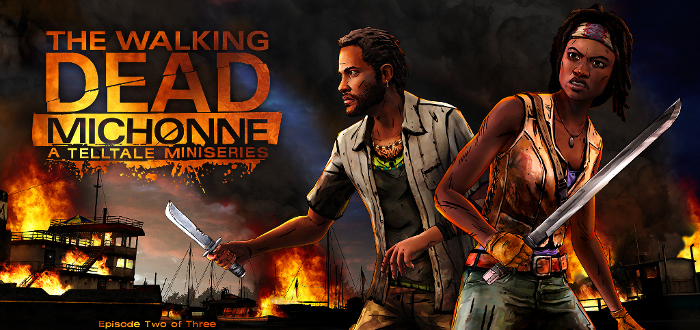
In recent years, certain video games have taken a firm stance on creating games centred around a theme or emotion, with parts of the indie scene acting as somewhat of a art house genre in gaming, creating games surrounding a tone or atmosphere to create an emotional response, seen in titles like That Dragon, Cancer or The Novelist. While the AAA industry has taken a more backseat approach to this style of creating games, themes and real life issues can still be found in titles like The Last of Us or Rise of the Tomb Raider.
While saying this, one thing I did not expect when playing The Walking Dead: Michonne was a focus on the concept of loss, and how it affects people. Going in, I had little to no knowledge of Michonne as a character, as all I had seen of her was as a katana-wielding badass. It turns out that she is far more than that, becoming one of the most interesting characters in The Walking Dead games with her own spinoff series dealing with deeply traumatic issues that affect her. However, this could have been a better game if Michonne’s character study didn’t get lost in the mediocre story of uninteresting villains, predictable twists and barely fleshed out side-characters.
The story of The Walking Dead Michonne is a messy one, maybe even more messy than The Walking Dead Season Two. The story is originally set up as a battle for land and power on a Waterworld-style civilisation between Michonne and her sailing buddies and the corrupt water city ruled by Norma and her awful, sadistic and wholly uninteresting brother Randal. Halfway through the second episode, though, the game takes a rapid change and this interesting setting for The Walking Dead universe is scrapped for a generic run-of-the-mill flee from the bad guys story.
While the villains of The Walking Dead games where never particularly interesting, the interactions and issues the side-characters dealt with was always the driving point of the games. But while Season One and Season Two had more time to build up their characters, The Walking Dead: Michonne‘s three episode structure gives the bare minimum screen time to characters we are meant to care for, instead constantly introducing new ones while at times literally forcing the ones we just met out of the picture in case the player gets bored of meaningful interactions with the people they are trying to save.
Speaking of characters, boy are they not memorable. In my review of ‘In Too Deep’ I brought up the issue that the opening sequence introduces a set of sailor friends for Michonne to interact with, but are immediately dropped for a new cast. This would be fine, if they weren’t then brought back in later episodes, and are framed like they should be important characters to the player. While a flashback sequence to Michonne’s introduction to the crew did at least give some tension as to their fate later in the series, it’s still nowhere near enough for me to care about them. By this time we have spent more time with Sam and Pete than this crew, though even Pete is immediately written out of the series in episode two due to his unrealistic perception of peoples morality in a zombie apocalypse.
This leaves us with episode two and three mainly focusing on Sam’s family life. Sam as a character to me is a lot like Ben from TWD Season One, though while Ben was just a kid who couldn’t take the world around him, Sam actually grows as a person throughout the series, dealing with the loss of her family while learning to control her rage. She becomes more of a friend character to Michonne than Pete, and her sister relationship actually grew on me a lot during the last episode, as I actually cared about her and her families survival – something I can’t say for the sailing crew, who are meant to be Michonne’s best friends. I will, however, give Telltale props for having a gay couple onscreen and making them memorable people with other issues rather than their sexuality, though more exploration of their characters would’ve been nice, as they were easily two of the most interesting characters of the cast.
One element that Michonne does excel at is combat, a gameplay element that has only gotten better over time with Telltale’s games. I mentioned in the last review that the introductions of black borders and new camera transitions change the action up a lot, and the later episodes of Michonne are filled with tense, well choreographed fight sequences, with some of the most visceral and imaginative deaths to be seen in Telltale’s The Walking Dead games. A lot of the better action sequences seem to draw influence from Telltale’s time away from The Walking Dead franchise, in The Wolf Among Us and what not, though I would argue that due to Michonne’s level of combat experience, it opens the option for a far more brutal and violent series. Overall the action sequences were always a highlight in Michonne, and hopefully Telltale’s current cinematic style continues to get better and better in their future games.
While improved action sequences are well and good, the key focus of The Walking Dead: Michonne is the titular character herself. As someone who came into this game with not much previous exposure to her as a character, I felt that the game did a very good job discussing her time with the comic cast and her backstory. The main focus of the game is Michonne’s past, constantly flashing between the present day and the past, dealing with Michonne’s time during the outbreak. These scenes are some of the most interesting in the game, focusing on Michonne’s guilt of losing her two daughters, her divorce and the panic of the walker outbreak in a city. These surreal, almost dream-like sequences play with Michonne’s psyche, stretching the environments and blurring the lines between reality and her guilt created apparitions. These issues begin to blend into the real world, setting off Michonne at the worst times, and sending her spiralling into an emotional episode. There were times, though, during the last episode that the ghostly apparitions of her daughters began to get a little ridiculous in how frequent they showed up, adding nothing more than spooky imagery.
Fans of Michonne as a character from both the TV show and the comics will ultimately get the most out of The Walking Dead: Michonne, as it delves deeper into her history and explores what makes her tick. Fans of the game series may not enjoy these as much, as it is probably the overall weakest series so far. To me The Walking Dead: Michonne is something of a crossroads for Telltale as a company, being the last game that will be using the current Telltale engine. If The Walking Dead Season Three is to learn anything from this, it’s to spend more time with the characters you create, as The Walking Dead: Michonne is interesting at its core, it’s just let down by a mediocre cast, pacing issues and a general lack of focus.
